Resources
An occasional course offered online (with registration fee) by the University of Wisconsin (Madison) Continuing Studies -- who helped develop the Wabash Center’s occasionally offered Workshop For Theological Faculty Teaching Online. “In this course, you’ll gain a gain a basic overview of the knowledge and skills you need to teach in the online environment, contextualized for those teaching in a theological setting. Key topics include online course models, characteristics of online learners, understanding your role as an online instructor, how to plan content and learning activities, and strategies to manage courses.”
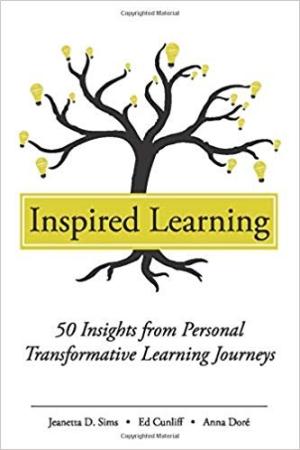
For those who wrestle with transformative learning or who need help breaking down the myths of learning, Inspired Learning offers 50 insights from the personal stories and experiences of award-winning professors. Through sharing personal vulnerabilities, adversities, and triumphs, distinguished educators illuminate the often uneasy and challenging path to learning. Drawn from perspectives across multiple disciplines, brief essays probe race, culture, and identity while inviting readers to consider and re-consider their own transformative journeys in engaging and personal accounts.From suggestions for connecting with mentors and taking advice from others to lessons on valuing failure and developing curiosity, this book grants readers permission to develop their own identity as learners - whether they are new to a college setting or experienced faculty members. Inspired Learning questions what it means to be a learner and offers how an open-minded environment can be beneficial and instructive for transformative learning. (From the Publisher)
The Atla Websites on Religion is a growing, selective, annotated collection of web resources for the study and teaching of religion. It’s first incarnation was on the Wabash Center website, created and maintained by Charles Bellinger.  “The Guide to Internet Resources for Teaching and Learning in Theology and Religion” it was often referred to as “The Internet Guide.” Atla took over development of the site in 2018.

How do you help students get the point you’re trying to teach? More often than not most of us try the direct approach: “Just tell them!” But a paradox in learning is that often students do not learn what they are told as well as when they discover it for themselves (there are two contrasting schools of pedagogy here: direct instruction vs. discovery learning). The issue at heart is that to by-pass the process of how one acquires learning is to inhibit learning. As I am fond of saying, “Teaching-by-telling doesn’t work because it does other people’s thinking for them.” One way to help students acquire a concept is to use Entry Points to help them approach the concept indirectly and through multi-faceted dimensions of learning. Here are the characteristics of Entry Points: ● Entry points are used to develop learning experiences aimed directly at developing understanding of key concepts (theses are usually identified in the learning objectives). ● Entry points “validate” instantiations of the target entry point. (E.g., an aesthetic entry point activity must tap into and apply the aesthetic dimension and align with an aesthetic learning outcome; an analytical entry point must help "advance rehearse" an analytical learning outcome, etc.) ● Entry point-based learning experiences require students to engage actively, and think with, and about, concepts in novel ways. Rich learning experiences employ a range of entry points to the content (i.e., introductory or “messing about” experiences that invite students with varying backgrounds, experiences, and expertise to work thoughtfully with the content). Joseph Piro provides a great example of the use of entry points in his article, "Teaching Rembrandt," Humanities (November/December 2007) Volume 28 Number 6). First, he provides a rationale for the function of the teaching in using this particular entry point: "Being an “agent of civilization” is one of the many roles ascribed to teachers. If we are to have any expectations of producing a well-educated, well-prepared generation of deep-thinking, resourceful leaders, then it is essential to give students an opportunity to review, respond to, and ultimately revere the power of the human imagination—past and present. There may be no better way to promote this than to study, understand, and exult in masterpieces." In the examples given in the article we can see a variety of concepts addressed through this entry point: A springboard into the Protestant Reformation, Counter-Reformation, the Thirty Years’ War, and other events in seventeenth-century Europe. The importance and significance of Biblical themes. The philosophical concept of aesthetic: beauty. Entry points can be used at any point in the lesson, not just the beginning. Remember that the function of the entry point is to lead into concepts-attainment. I have used the following with students as entry points for segments for concepts attainment in the learning process: ● A video clip of ballet dancers to understand the concept of triangles and homeostasis ● Playing with clay to understand Aristotle’s form-matter hypothesis ● Playing the game Cranium to understand the concept of multiple intelligences ● A slide show of paintings and sculptures to understand different philosophies of aesthetic interpretation ● A short movie to understand “postmodern” concepts followed by a film critic's critique ● Creating a board game to understand group dynamics and the “rules about rules.” As you prepare for your next teaching experience, take time to consider how you want your students to “enter the learning experience” by creating an entry point that leads to the learning outcome.

Do you strategize ahead of time the way I do for the airplane/drinks reception/parent meeting question: “So, what do you do?” I teach theology and Church history. Experience has taught me that telling a stranger I teach either subject is a conversation killer. I usually stick with “history professor,” but even that response often triggers the revelation of a deep dislike for history. Frequently, this is a holdover from a high school class that focused on memorizing and repeating facts and dates, i.e., bad pedagogy. This definitely is not a problem in my classes. For me, good history education focuses on the “why” and “how” of past events, especially the reasons for changes over time. My class doesn’t focus on precisely when Aristotelian thought collided with Christian theology. Instead, we discuss “what was the result?” Over the last few years, though, I realized that by minimizing timelines and dates, my pedagogy was doing students a disservice. Precious class time was spent on big historical changes and theological developments, but it left out the fine details. For example, the Council of Nicaea is a watershed event in Church history, a touchpoint between the institutional church and secular authorities. Students learn to offer an overview of the way in which the early church lurched from one major council to the next, and what were the significant outcomes. They can even articulate big theological points of contention. However, when prompted to consider “how and why did we get to a point, theologically speaking, at which a Roman emperor felt the need to summon a Church council,” students squirmed. They couldn’t provide a chronology beyond a few notable developments. But the chronology up to, and after, Nicaea really matters for helping us understand how key historical figures handled, and fought over, theological nuances. Who was exiled for his theology, and when, really matters. Seeking to improve student learning in theology and history, I introduced a digital tool, Visme, that serves as a timeline and infographic. For particular reading assignments, students had to create a graphic based on a topic, such as synods in the Frankish Church or the textual evidence for the filioque. I asked them to think of the graphic as a tool that they themselves could use to teach someone else a new topic. Visme is intuitive and visually attractive, and it has the pedagogical advantage of prompting students to make choices at multiple levels in order to tell an effective story. For example, if there are only ten entries on the infographic template, students have to carefully choose which way markers (e.g., an event or emergence of an idea) serve as concise headers (such as a word, name, or phrase) that can move the story along. When students write brief content to accompany the header, they, again, have to choose what is most relevant for that header—and for the entire story. Failure to create entries that were similar in style detract from the content and timeline overall, forcing the reader/viewer to work harder to understand what was most relevant. A small pedagogical change, like the introduction of a digital tool, can reap rewards, but it comes with challenges. Colleagues from other disciplines had assured me that integrating digital media into a humanities course would be seamless. After all, they said, our students are digital natives. It turns out, though, that a surprising number could still proclaim: “I’m not really good with technology.” When prompted for feedback, some students said they spent too much time on the look of the infographic and not enough on its content. Overall, though, they found the exercises to be helpful. Knowing that they would be creating a timeline helped them to focus their reading and notes. Ultimately, theological ideas don’t float in the air and get absorbed. Rather, they are passed, in time, person to person (or even person to text to person). St. Augustine’s understanding of grace, for example, didn’t spread abstractly. It was handed along through tractates and personal conversations and in synods, from one community to another. Theologically important conflicts emerged between people who held specific viewpoints and took discrete actions, all of which unfolded in time. Even the exegesis of a theological text is something that unfolds in sequence. What I learned by spending more time on chronology, and by using a digital tool as part of my pedagogy, is that students’ learning truly improved, especially with regard to their understanding to historical and theological relationships. And, in the end, it prompted them to think about the ways in which their learning could shape their future teaching.
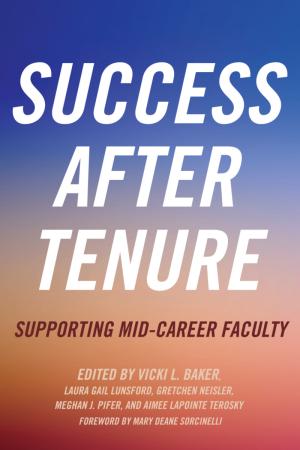
This book brings together leading practitioners and scholars engaged in professional development programming for and research on mid-career faculty members. The chapters focus on key areas of career development and advancement that can enhance both individual growth and institutional change to better support mid-career faculties. The mid-career stage is the longest segment of the faculty career and it contains the largest cohort of faculty. Also, mid-career faculty are tasked with being the next generation of faculty leaders and mentors on their respective campuses, with little to no supports to do so effectively, at a time when higher education continues to face unprecedented challenges while managing continued goal of diversifying both the student and faculty bodies. The stories, examples, data, and resources shared in this book will provide inspiration--and reality checks--to the administrators, faculty developers, and department chairs charged with better supporting their faculties as they engage in academic work. Current and prospective faculty members will learn about trends in mid-career faculty development resources, see examples of how to create such supports when they are lacking on their campuses, and gain insights on how to strategically advance their own careers based on the realities of the professoriate. The book features a variety of institution types: community colleges, regional/comprehensive institutions, liberal arts colleges, public research universities, ivy league institutions, international institutions, and those with targeted missions such as HSI/MSI and Jesuit. Topics include faculty development for formal and informal leadership roles; strategies to support professional growth, renewal, time and people management; teaching and learning as a form of scholarship; the role of learning communities and networks as a source of support and professional revitalization; global engagement to support scholarship and teaching; strategies to recruit, retain, and promote underrepresented faculty populations; the policy-practice connection; and gender differences related to key mid-career outcomes. While the authors acknowledge that the challenges facing the mid-career stage are numerous and varying, they offer a counter narrative by looking at ways that faculty and/or institutions can assert themselves to find opportunities within challenging contexts. They suggest that these challenges highlight priority mentoring areas, and support the creation of new and innovative faculty development supports at institutional, departmental, and individual levels. (From the Publisher)
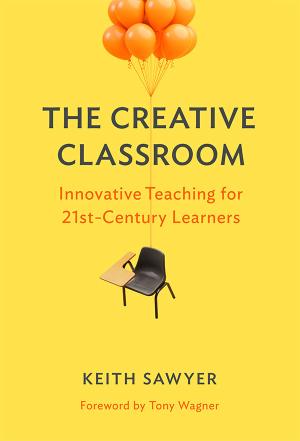
The Creative Classroom presents an original, compelling vision of schools where teaching and learning are centered on creativity. Drawing on the latest research as well as his studies of jazz and improvised theater, Sawyer describes curricula and classroom practices that will help educators get started with a new style of teaching, guided improvisation, where students are given freedom to explore within structures provided by the teacher. Readers will learn how to improve learning outcomes in all subjects—from science and math to history and language arts—by helping students master content-area standards at the same time as they increase their creative potential. This book shows how teachers and school leaders can work together to overcome all-too-common barriers to creative teaching—leadership, structure, and culture—and collaborate to transform schools into creative organizations. (From the Publisher)
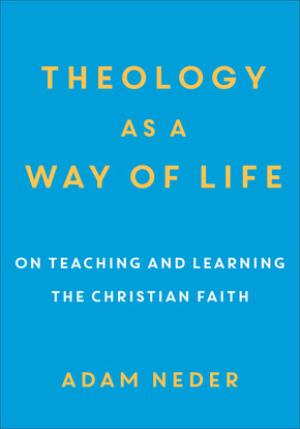
What difference does Jesus Christ make for the way we teach the Christian faith? If he is truly God and truly human, if he reveals God to us and us to ourselves, how might that shape our approach to teaching Christian theology? Without a compelling theological vision of theological instruction and without a clear awareness of its unique goals, challenges, and temptations, our teaching will be out of joint with the subject matter, and we will waste valuable opportunities. Drawing on the work of S√∏ren Kierkegaard, Karl Barth, and Dietrich Bonhoeffer, Adam Neder offers a clear and creative theological and spiritual reflection on the art of teaching the Christian faith. This concise and engaging book offers a wealth of fresh insights and practical suggestions. While addressed to teachers in academic contexts, the approach is broad enough to include anyone involved in teaching and learning Christianity. (From the Publisher)
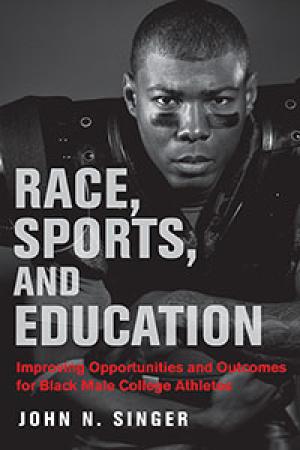
Race, Sports, and Education highlights the myriad ways in which organized collegiate sport has both positively contributed to and negatively detracted from the educational experiences of Black male college athletes. Specifically, John N. Singer examines the educational experiences, opportunities, and outcomes of Black males who have played NCAA Division I football and/or basketball at historically White colleges and universities. Singer is intensely aware of the ways in which many Black athletes have been shortchanged by the collegiate sport system. He describes how the colleges and universities have exploited athletes for the institutions’ financial gain and deprived them of basic educational opportunities that ought to be enjoyed by all students. At the same time, Singer argues that sports do in fact offer genuine educational opportunities and benefits for many of these athletes. He is acutely attuned to the fact that these athletes love their sports, and that their participation in these sports makes unique educational experiences available to them. As Singer shows, to understand the situation and to chart realistic, fruitful reform measures requires a full appreciation of the complexity—indeed, of the many competing and contradictory elements—that characterizes intercollegiate sport and the experiences of Black athletes at the present time. The book brings to the fore the voices, stories, and perspectives of twelve Black male college athletes via a case study of teammates from a big-time college football program and individual reflective vignettes of athletes across several different college programs. Through his analysis of the system and his attention to student views and experiences, Singer crafts a valuable, nuanced account and points in the direction of reforms that would significantly improve the educational opportunities and experiences of these athletes. At a time when collegiate sports have attained unmistakable institutional value and generated unprecedented financial returns—all while largely failing the educational needs of its athletes—this book offers a clear, detailed vision of the current situation and suggestions for a more equitable way forward. (From the Publisher)